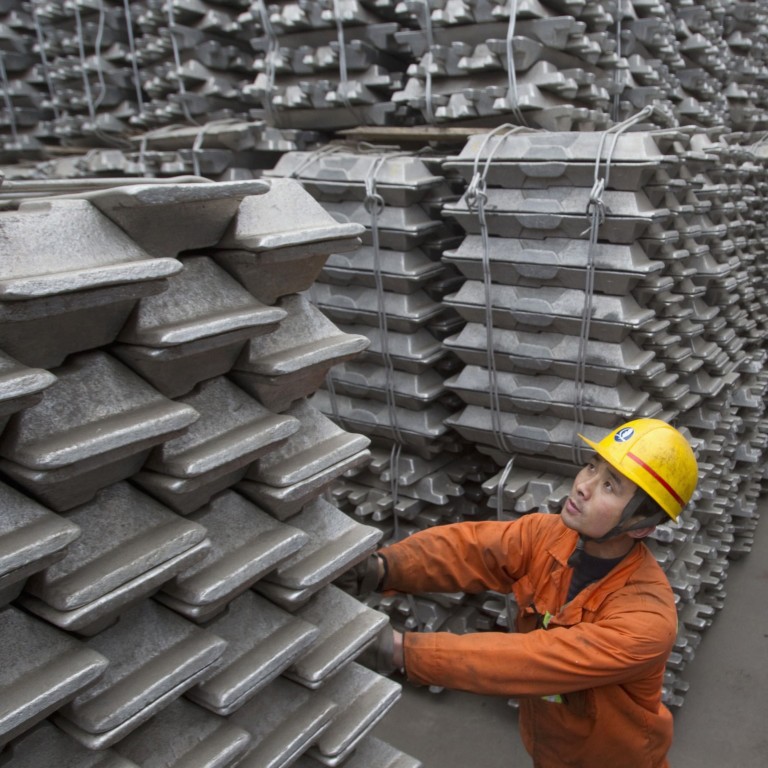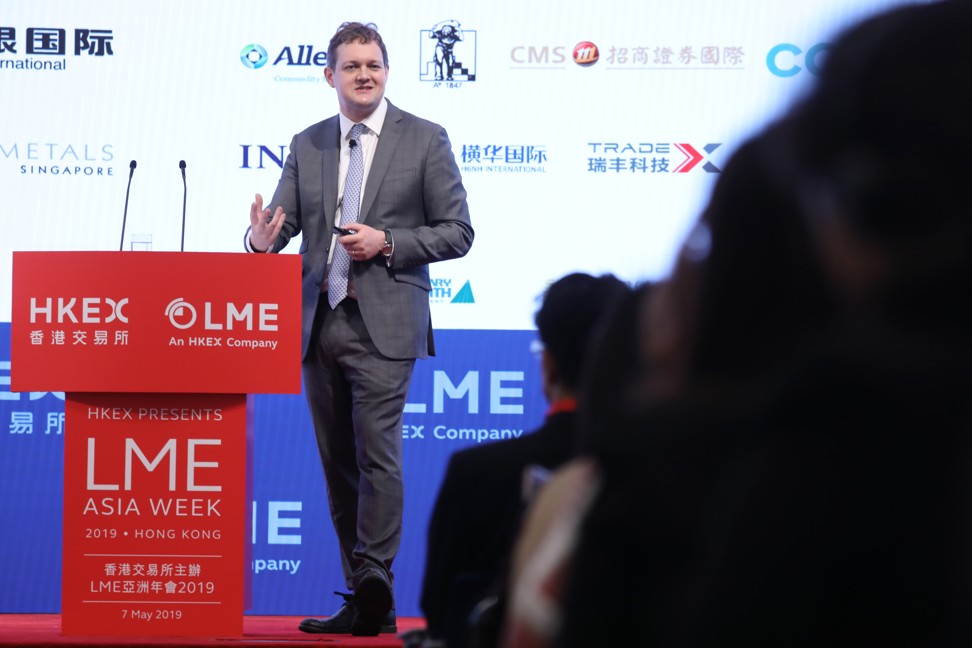
Hong Kong exchange in talks to open first authorised metals warehouse in China to ease deliveries, expand LME’s business
- A delivery warehouse on the mainland will add to the LME’s Asia network which comprises Taiwan, South Korea and Singapore
- The world’s largest metal exchange also wants to launch six US dollar-denominated metal contracts this year in Hong Kong, a second launch after the first yuan-denominated financial instruments flopped
Hong Kong Exchanges and Clearing Limited (HKEX), the owner of the world’s largest market for base metals, is in talks with the Guangdong provincial government to open its first authorised warehouse in one of the nine cities in the Greater Bay Area.
The proposed warehouse, to be authorised by the Hong Kong bourse’s wholly owned London Metal Exchange (LME) unit, will be a breakthrough as it adds a vital waypoint for the physical delivery of metal contracts traded on the marketplace. Currently, LME’s deliveries can only be done in Taiwan, South Korea or Singapore, adding to the transport and customs clearance costs for traders based in mainland China.
“Having a warehouse in mainland China will be the last piece of the puzzle for our global warehouse network,” said LME’s Chief Executive Matthew Chamberlain, speaking at a sideline of a conference in Hong Kong. “It shows our strong desire to expand in mainland China.”
Various regulations and laws bar non-mainland companies from owning warehouses in China, a seemingly insurmountable hurdle that may now be overcome with the Chinese central government’s push into the Greater Bay Area.
The LME doesn’t own warehouses outside the UK. Its global network comprises authorised warehouses whose operations meet the exchange’s standards. These are added to the network for clients to take delivery of their stock conveniently and safely.
“Now we think is the right time” to try to set up that warehouse, Li said today. “We are looking at leveraging the Greater Bay Area initiative, actively talking with the government to see if we can have an experiment to set up a pilot scheme for the LME to have an authorised warehouse in the Greater Bay Area. It is not easy, but we have started that journey.”

The LME will introduce US dollar-denominated metal contracts in Hong Kong later this year to trade aluminium, zinc, copper, lead, nickel and tin at 5 tonnes per contract, a fifth of the size in London, Chamberlain said.
It will be the second attempt since an earlier launch of the six mini contracts – denominated in yuan – became the least traded financial instrument in Hong Kong, with a mere seven contracts changing hands every day last year on average. By comparison, stock options topped last year’s ranks of daily transactions with 517,395 contracts changing hands every day.
The denomination of the first six mini contracts caused a lot of inconvenience for global traders, because they don’t have the Chinese renminbi on hand, Chamberlain said.
“Many stakeholders told us they want to trade our US dollar products during the Asian time zone,” he said.
Alfred Yeung Ping-kwan, chairman of investment firm Glory Sky Group, said the proposed tie-up will benefit both the mainland and Hong Kong if the LME can set up a warehouse in the Greater Bay Area.
“It will allow the LME to introduce best international practices to the mainland’s commodities market,” Yeung said, but added that the HKEX will find it a long and arduous process to successfully lobby the mainland authorities to open up as Beijing will be worried about capital outflow.
He also said that the upcoming US-dollar denominated contracts will be more popular than those traded in yuan because of the offshore yuan’s volatility in recent years. “This added risks for traders. They will prefer to trade LME products in Hong Kong in US dollars.”

